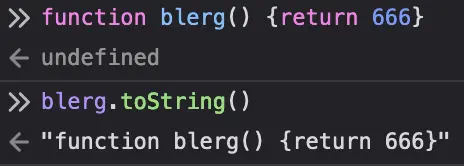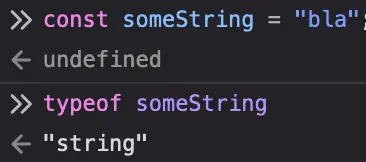- 22 Posts
- 155 Comments
Lemmy stalinists are going to enjoy this one

 19·3 months ago
19·3 months agoUrr, I don’t think that’s it. I’m not sure stereo sound for vinyls has ever worked so that something like this would be necessary, and it wouldn’t really make sense – why would they have to put vocals on one channel and instruments on the other?
A stereo vinyl player just has the needle moving up and down in addition to left and right, so that the left-right axis is the sum of the waveforms of both channels and the up-down axis is the difference – which means that a regular mono player can play stereo vinyls

 5·3 months ago
5·3 months agoMore of a tragicomedy, really
Where’s your sense of adventure?!
Calling
reverse()on a function should return its inverse
You’re no fun
"E".reverse() == "∃"
I dint know many OO languages that don’t have a useless toString on string types.
Well, that’s just going to be one of those “it is what it is” things in an OO language if your base class has a
toString()-equivalent. Sure, it’s probably useless for a string, but if everything’s an object and inherits from some top-levelObjectclass with atoString()method, then you’re going to get atoString()method in strings too. You’re going to get atoString()in everything; in JS even functions have atoString()(the output of which depends on the implementation):
In a dynamically typed language, if you know that everything can be turned into a string with
toString()(or the like), then you can just call that method on any value you have and not have to worry about whether it’ll hurl at runtime because eg.Strings don’t have atoStringbecause it’d technically be useless.

Everything that’s an
Objectis going to either inheritObject.prototype.toString()(mdn) or provide its own implementation. Like I said in another comment, even functions have atoString()because they’re also objects.A
Stringis anObject, so it’s going to have atoString()method. It doesn’t inheritObject’s implementation, but provides one that’s sort of a no-op / identity function but not quite.So, the thing is that when you say
const someString = "test string", you’re not actually creating a newStringobject instance and assigning it tosomeString, you’re creating astring(lowercases!) primitive and assigning it tosomeString:
Compare this with creating a
new String("bla"):
In Javascript, primitives don’t actually have any properties or methods, so when you call
someString.toString()(or call any other method or access any property onsomeString), what happens is thatsomeStringis coerced into aStringinstance, and thentoString()is called on that. Essentially it’s like goingnew String(someString).toString().Now, what
String.prototype.toString()(mdn) does is it returns the underlyingstringprimitive and not theStringinstance itself:
Why? Fuckin beats me, I honestly can’t remember what the point of returning the primitive instead of the
Stringinstance is because I haven’t been elbow-deep in Javascript in years, but regardless this is whatString’stoString()does. Probably has something to do with coercion logic.

 4·3 months ago
4·3 months agoIt’s always great fun when people who have absolutely zero fucking clue how something works declare it “stupid”.
Ah well that’s certainly fair enough, I had no idea it’s a Google-encumbered format.
Not sure I’ve ever “voluntarily” converted something to webp. Many Lemmy instances’ pict-rs setups seem to use it, my home instance sopuli.xyz obviously being one of them, which I guess is a sort of a funny choice considering
Why do so many folks dislike webp? I really have no strong feelings towards it one way or the other
Which, I guess, is part of the problem
Exactly so!
While I’ll definitely do what I can to try and influence the trajectory we’re on I’m just one person with very little power, and I’m not exactly optimistic about how things are going and figure that at some point something like this meme will be the best I can do
It’s the step between primary and secondary school that a lot of countries have, also known as intermediate school, junior high school, junior secondary school, or lower secondary school: https://en.wikipedia.org/wiki/Middle_school
Yeah it was a middle school thing in Finland too, at least in the 90’s.
I did an exchange year in the US in my 2nd high school year, and I was honestly a bit surprised at how… well, simple it all was. I was a senior in the US and I’d learned just about everything they taught that wasn’t specific to the US or the English language (and even some of those…) either in my 1st year in high school or in middle school.

 9·5 months ago
9·5 months agoNot all that cute though

 11·5 months ago
11·5 months agoWith “guarantees” I meant things like whether you want to have perfect forward secrecy, or whether you want to provide some degree of deniability, and so on, not so much what kinds of guarantees you’re relying on although they’re definitely also good to keep in mind.
“As secure as possible” is a very all-encompassing goal which doesn’t really say much – what I was trying to get at with my point about the guarantees you want to make is that you’ll want to have a clear idea of what you actually mean with “as secure as possible” so you’ll know what sort of eg. architectural decisions to make before you do a lot of work and paint yourself into a corner.
It’s a very ambitious project, but I can guarantee it’ll probably be very interesting to work on and you’ll learn a lot regardless of the outcome, and I’m definitely rooting for you.
“Understandable, I hope you have a better one”